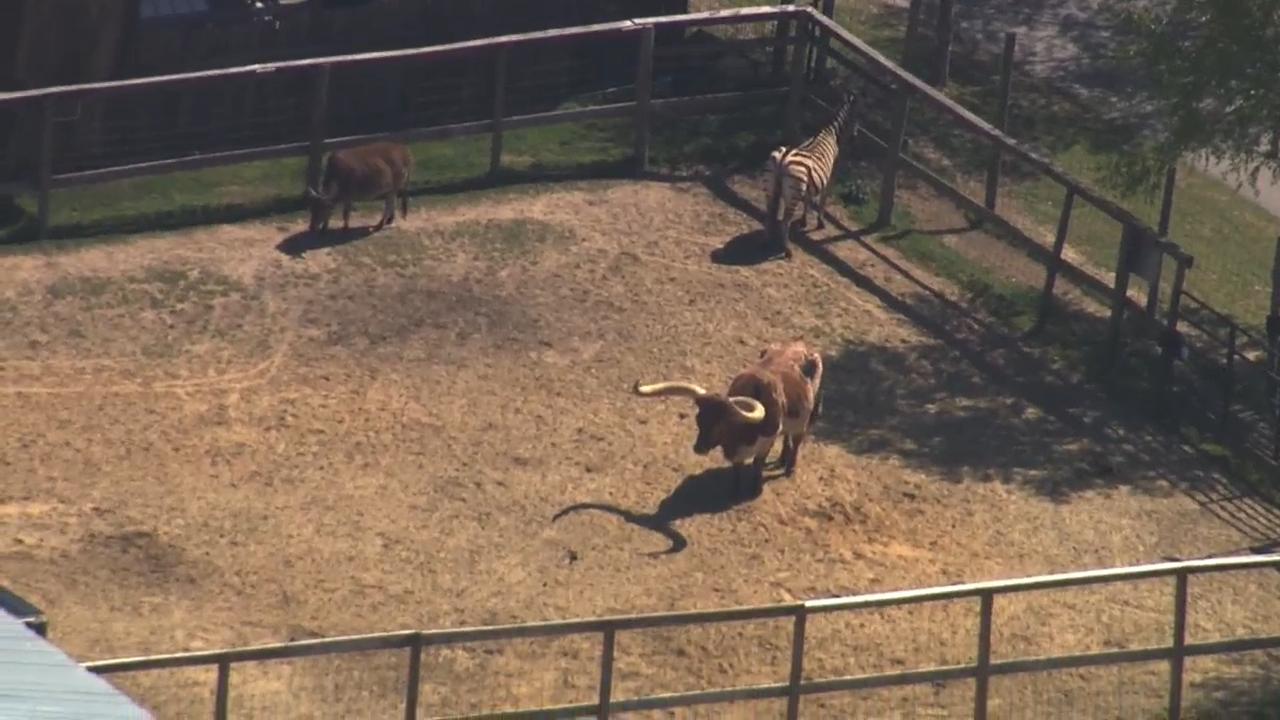If you follow Zach and Mychal Storer on social media, you’ll quickly realize their passion for animals. In Arizona, they operate a venture named Animal People, dedicated to educating the public about animals, conducting classes, and more.
Their relocation to Edgecombe County took place in February 2023 to join the team at It’s a Zoo Life.
Upon arrival, they observed discrepancies in the animal care practices at the facility.
Zach Storer expressed his concerns, stating, “I observed a lack of specialized care for highly unique and exotic animals, particularly primates. These animals require exceptional care, and without proper knowledge, significant issues can arise, which is currently the case.”
Regular evaluations of zoos, including It’s a Zoo Life, are conducted by the United States Department of Agriculture.
On April 8, 2024, Sky 5 flew over It’s a Zoo Life in Edgecombe County.
Inspection reports dating back to 2018 highlight numerous citations, such as substandard living conditions for animals, inadequate staffing, and delays in treating injured animals.
Nearly every review mentioned absent animal records and the failure to meet USDA documentation requirements.
The most recent evaluation in February 2024 spanned seven pages of citations.
One distressing incident involved the discovery of a deceased ringtail lemur in its enclosure without consultation from the attending veterinarian, a violation of the Animal Welfare Act.
Furthermore, records indicated instances where zoo visitors were harmed by animals, including an incident last October where a lemur injured a patron’s face.
Despite attempts to reach out, the owner of It’s a Zoo Life, Bobbie Jo Abrams, declined an interview.
During a phone conversation, Abrams mentioned that the zoo often takes in rescues, potentially leading to lapses in documentation compliance.
When questioned about reports of inadequate water in animal enclosures, Abrams attributed the issue to the challenges of managing a large property, suggesting that animals might have disrupted their water supply around the time of inspection.
Abrams directed WRAL to her legal representative, who did not respond to inquiries.
The Storers cited these issues as the primary reason for their departure.
“We uprooted our family and moved across the country out of genuine concern and a desire to make a positive impact. However, due to fundamental disagreements on animal welfare practices, we made the difficult decision to leave,” explained Mychal Storer.
With experience working at the Los Angeles Zoo and holding certification in animal care, Mychal Storer emphasized the significance of adequate staffing and training in ensuring proper animal welfare.
The Storers expressed their belief that intentional understaffing and lack of expertise contribute to the prevalent issues in animal care.
“It appears deliberate to avoid individuals with substantial knowledge or training, as it would expose the existing problems,” Zach Storer remarked.
Ultimately, the Storers reiterated their commitment to the well-being of the animals under their care.
“I want to see them thrive because their success directly translates to the animals’ well-being,” Mychal Storer emphasized.
The Storers reported their concerns to the USDA, but the agency redirected inquiries to their inspection reports upon contact.
